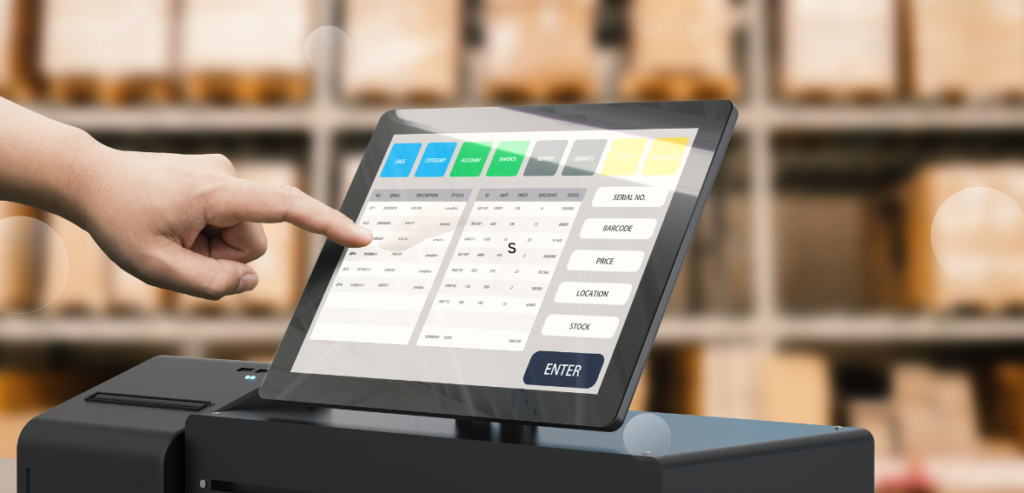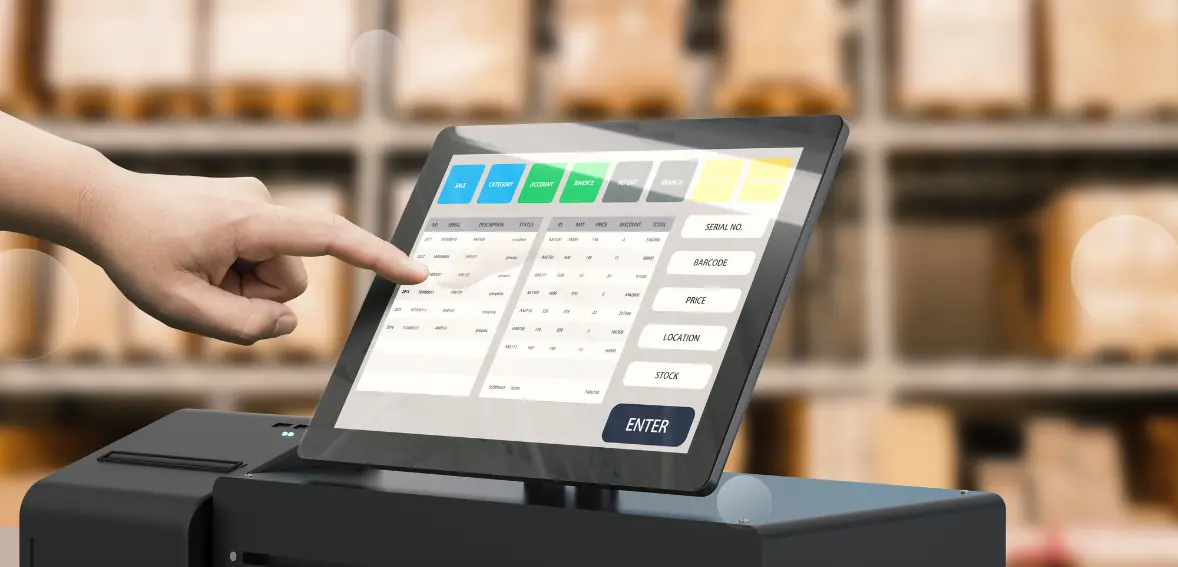Point-of-sale systems have come a long way since they were introduced as advanced replacements for cash registers in the 20th century. Modern point-of-sale (POS) solutions offer more than just the ability to ring up purchases; they integrate multiple functions such as merchant services, inventory control, payment processing, scheduling employee shifts, collecting customer data, and even automating marketing functions. If you are also looking to upgrade your point of sale system now, this article is just for you.
With the right POS system, a small business owner can do more than replace her credit card machine and upgrade her checkout routines. POS solutions can significantly boost the competitive edge of retail and hospitality businesses by increasing accuracy and presenting information to enable analysis of sales and operations.
Over time, developers of POS solutions upgrade their solutions according to changes in the industry and market demands. If you still use the same POS system you installed five years ago, consider upgrading it.
Five Reasons To Upgrade Your Point of Sale System

Energy Efficiency and Saving Space
New business owners often turn to liquidators and used equipment dealers in the restaurant industry to acquire their first POS (Point of Sale) system. This approach provides an affordable way to get started without the hefty investment of purchasing brand-new equipment. Many of these systems have been refurbished or gently used, making them suitable for small businesses operating on a tight budget.
Upgrading to newer, more efficient systems is essential for those still using outdated POS units with bulky hardware and sluggish performance. Modern POS systems offer sleek designs, compact sizes, and faster processing speeds, maximizing space and improving operational efficiency. With a smaller footprint, these systems free up valuable counter space for food preparation or additional revenue-generating activities.
Furthermore, energy-efficient features of newer POS systems contribute to cost savings and environmental sustainability. By reducing power consumption, businesses can lower their utility bills and minimize their carbon footprint.
Convenience and Security
Modern POS (Point of Sale) systems are transitioning to cloud-based hosting, offering numerous business advantages. Cloud-based POS systems provide enhanced protection against data breaches and unauthorized access by storing data in secure data centers with PCI-compliant security measures. These data centers employ robust encryption protocols and regular security updates to safeguard sensitive information, such as customer payment details and transaction records.
One significant benefit of cloud-based POS systems is their resilience against unforeseen disasters. In the event of theft, fire, or natural disasters that may damage or destroy physical equipment, your business data remains safe and accessible. This ensures business continuity and minimizes disruption to operations, as you can quickly resume transactions and access critical information from any internet-connected device.
Additionally, cloud-based POS systems offer scalability and flexibility, allowing businesses to quickly expand or adapt their operations without costly hardware upgrades or extensive IT infrastructure. With data stored securely in the cloud, companies can focus on providing excellent service to customers without worrying about data loss or system downtime.
Advanced Merchant Services and Payment Processing
Merchant services providers often offer low-cost POS (Point of Sale) solutions that leverage cloud technology. While some may view these offers skeptically, dismissing them as gimmicks, they represent a significant business opportunity. Cloud-based POS systems enable merchant processors to deliver advanced services seamlessly, enhancing the overall efficiency and functionality of the system.
For instance, a cloud-based POS solution may include custom gift card integration, online ordering capabilities, and robust business analytics tools. These additional functionalities can streamline operations, improve customer engagement, and provide valuable insights into business performance.
Business owners should pay attention to the value of these low-cost POS solutions, as they offer access to essential features and services that can drive growth and success. By embracing cloud technology, businesses can stay competitive in a rapidly evolving market landscape and meet the expectations of modern consumers.
Omnichannel Customer Services

Cloud POS (Point of Sale) systems offer more than enhanced security; they provide business owners valuable omnichannel advantages. By leveraging cloud technology, businesses can seamlessly integrate multiple sales channels into a cohesive system, such as online ordering, mobile payments, and in-store transactions. It enables greater convenience for customers and increases operational efficiency for businesses.
For instance, a deli store owner can implement a cloud POS system that allows customers to place orders and make payments directly from their smartphones. This omnichannel approach provides flexibility and convenience, catering to the preferences of modern consumers who seek convenience and efficiency in their shopping experience.
Moreover, cloud POS systems enable automated processes that enhance customer engagement and loyalty. For example, businesses can automatically offer loyalty coupons or rewards based on customer spending patterns, encouraging repeat business and fostering customer loyalty.
Customer Relationship Management
Modern POS (Point of Sale) systems offer potent sales tools to enhance business efficiency and customer satisfaction. One of the most compelling features of these systems is CRM (Customer Relationship Management) integration. This functionality seamlessly allows businesses to manage customer data, preferences, and interactions, enabling personalized marketing strategies and promotions.
For example, consider a boutique hotel that wishes to reward frequent guests with a special discount on their birthday. With CRM integration in their POS system, the hotel can easily identify and track loyal customers, including their birthdays, preferences, and past purchases. It enables the hotel to implement targeted marketing campaigns, such as offering a 60 percent discount to guests on their birthday, thereby enhancing customer loyalty and driving repeat business.
Unlike older POS systems that lack CRM capabilities, modern POS systems empower businesses to implement sophisticated marketing strategies and promotions tailored to individual customer needs and preferences. By leveraging CRM integration, companies can build stronger customer relationships, increase customer satisfaction, and drive revenue growth.
How to Choose the Right POS System
When choosing a new POS system for your restaurant, aligning the system with your unique business requirements, financial limitations, and feature preferences is crucial. One of the primary considerations should be customization options. Opt for a system that allows you to customize menu layouts, modify order workflows, or integrate loyalty programs.
Budget constraints play a significant role in the decision-making process. While opting for the most feature-rich system available is tempting, balancing functionality with affordability is essential. Consider the upfront and long-term expenses, including software updates, maintenance fees, and potential expansion costs.
Seamless integration with other software is another crucial factor to consider. Your POS system should effortlessly sync with existing tools such as accounting software, inventory management systems, and online ordering platforms. This integration streamlines operations, reduces manual data entry, and enhances efficiency.
Furthermore, reliable customer support ensures smooth implementation and ongoing assistance. Choose a POS provider known for responsive customer service, comprehensive training programs, and readily available technical support. It ensures that any issues or questions can be promptly addressed, minimizing disruptions to your restaurant’s operations.
Selecting the right POS system involves careful consideration of your business’s specific needs, financial constraints, and desired features. Look for a customizable system that integrates seamlessly with existing software and offers reliable customer support. By making an informed decision, you can invest in a POS system that enhances efficiency, improves customer service, and drives the success of your restaurant.
The Role of Liquidators and Used Equipment Dealers
Liquidators and used equipment dealers offer cost-effective solutions for restaurant owners seeking to upgrade their POS systems affordably. These vendors often provide refurbished or pre-owned equipment at discounted prices, making them attractive options for businesses on a budget. However, conducting thorough research and inspection is essential before finalizing a purchase.
While the cost savings may be appealing, quality and reliability should be maintained. Restaurant owners must carefully examine the equipment to ensure it meets their standards and operational needs. It includes testing the functionality of the POS system, inspecting for any signs of damage or wear, and verifying the vendor’s reputation for selling reliable products.
By taking the time to research and inspect the equipment, restaurant owners can mitigate the risks associated with purchasing from liquidators and used equipment dealers. With proper diligence, they can find a high-quality POS system that meets their requirements and provides long-term value for their business.
Importance of Investing in Quality POS Systems

Investing in a quality POS (Point of Sale) system may initially incur a higher cost, but the long-term benefits far outweigh the upfront investment. These systems contribute to improved efficiency within the restaurant, facilitating smoother transactions, faster order processing, and reduced wait times for customers. Enhanced efficiency leads to increased productivity and, ultimately, higher revenue generation.
Moreover, a quality POS system enhances customer satisfaction by providing a seamless and enjoyable dining experience. Features such as quick order processing, accurate billing, and loyalty program integration contribute to positive customer interactions and repeat business.
Streamlined operations are another significant advantage of investing in a quality POS system. These systems offer advanced reporting and analytics tools, enabling better decision-making, inventory management, and staff scheduling. Owners can minimize waste, maximize profits, and ensure long-term sustainability by optimizing restaurant operations.
Conclusion
Upgrading your restaurant’s POS system is not just a necessary expense; it’s a strategic investment in your business’s future success and growth. Whether you’re a new business owner or seeking to replace outdated equipment, investing in a modern POS system is essential for remaining competitive and thriving in today’s restaurant industry.

